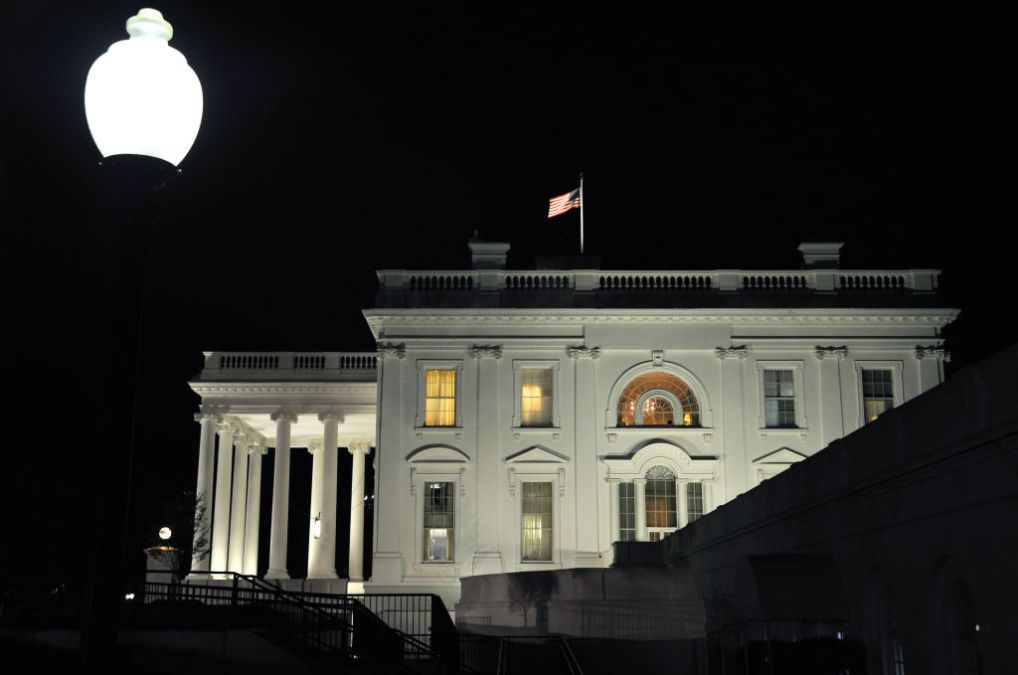White House pushes AI infrastructure following meeting with tech CEOs

The White House is pursuing several new efforts meant to advance U.S. leadership on artificial intelligence, announcing Thursday the creation of a new task force on data center infrastructure and related measures following a meeting with several executives of leading AI and tech companies.
The meeting centered on key aspects of the physical infrastructure required to build AI infrastructure in the U.S., including clean energy permitting and workforce requirements — priorities that seemingly echo policymakers’ discussions about boosting semiconductor manufacturing. Specifically, federal officials and executives who attended Thursday’s White House roundtable focused on securing power sources to support the enormous data centers that large AI models depend on.
“Developing and operating leading AI in the United States is vital for protecting national security and ensuring that AI systems are safe, secure, and trustworthy,” a press release from the White House stated. “Participants also discussed ways to create good paying jobs for workers, including roles for pipefitters and electrical workers, and keep energy costs low for consumers.”
That statement continued: “The United States is the global leader in AI, and we are taking action to ensure future AI infrastructure creates jobs for American workers, and is built in the United States and powered by clean energy.”
A series of initiatives were announced following the meeting. A new task force on AI datacenter infrastructure will “identify opportunities and work with agencies to ensure adequate resourcing, designate agency single points of contact, and properly prioritize AI datacenter development to reflect the importance of these projects to American national security and economic interests,” among other goals, per the release.
Similarly, the U.S. Army Corps of Engineers is meant to help identify nationwide permits that can aid in accelerating the construction of AI-focused data centers. A datacenter engagement team, run out of the Energy Department, will focus on using tools like loans and grants to help access sources of clean energy.
At the same time, the DOE will also help these companies access and repurpose coal power plants. “Hyperscalers at today’s convening reaffirmed their commitments to achieving net zero carbon emissions and to procuring clean energy to power their operations,” the press release noted.
Though these updates might be exciting news for AI firms, civil society groups pushed back on the announcement, citing serious concerns over the impact on the environment, lack of transparency, and anticompetitive behavior.
“In Virginia, the lack of transparency around the explosive growth of data centers and the impacts on energy infrastructure, water resources, climate and air quality goals, and communities continues to be a threat to a clean energy transition and public accountability,” said Julie Bolthouse, the director of land use at the Piedmont Environmental Council.
Ryan Gerety, the director of the Athena Coalition, which represents dozens of progressive organizations across the country, warned that the meeting signaled collusion between Big Tech and energy policy, and should raise concerns.
“As part of an AI-boom, tech corporations are racing to build energy-hungry data centers with little actual attention paid to consequences for the planet and public. Today, coal plants are staying open so that the richest corporations in the world get the energy they want,” Gerety said. “Meanwhile, investor-owned utility monopolies are happy to turn a profit. If this continues, the public will pay higher energy costs, and we will have failed to build the clean energy infrastructure we need for the future of people and the planet.”
The slew of prominent technology executives in attendance at the meeting included OpenAI CEO Sam Altman, Anthropic CEO Dario Amodei, Amazon Web Services CEO Matt Garman, Nvidia president and CEO Jensen Huang, Electric Power Research Institute president and CEO Ashad Mansoor and Ruth Porat, president and chief investment officer at Alphabet, Google’s parent company.
On the federal side, Commerce Secretary Gina Raimondo and Energy Secretary Jennifer Granholm were there, along with White House advisers and other officials from the executive branch.
Editor’s note: This story was updated Sept. 13, 2024, with comments from civil society organizations, and updated again Oct. 2, 2024, to remove a reference that misrepresented the repurposing of coal sites.



